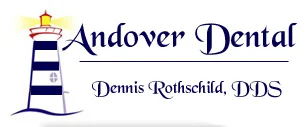Frequently asked questions
Every office operates a little differently so we have provided answers to a list of commonly asked questions below. Here are 15 common questions that our patients and website visitors ask. If you have questions that we haven’t addressed here, please feel free to ask!
Do you accept my insurance plan?
We accept PPO insurance plans and, as a courtesy to our patients with insurance, we will file your claims. We are happy to assist you in understanding your insurance coverage prior to treatment. The amount not covered by your insurance is due at the time of your visit.
My spouse snores and keeps me up all night. I've heard that a dentist might be able to prescribe an appliance that prevents snoring. If this is true, how do I find out if you can help?
Snoring is tough on any relationship! And, since it can be caused by a number of factors, we encourage you to have your spouse come in for a consultation and analysis with one of our doctors to determine the cause. In some cases, a person may actually stop breathing for short periods during the night—a condition called sleep apnea. In other cases, snoring can be caused by enlarged anatomical structures within the mouth and throat. During sleep, the throat area relaxes, allowing these structures to collapse against one another and obstruct clear airflow. In the latter situation, we can prescribe and fit a special appliance which gently holds the mouth and throat in an open position during relaxed sleep and thus prevents snoring.
How do I know when it's time to come in for a checkup?
An average, healthy adult person typically benefits from a professional cleaning and checkup every six months. While twice daily brushing and daily flossing go a long way towards maintaining a healthy mouth, it’s wise to check for plaque that has hardened into tartar, requiring professional cleaning to avoid gingivitis
At what age should my children first see a dentist?
Believe it or not, it’s wise to bring a child in for their first dental visit about six months after their primary teeth have erupted, or generally around their first birthday. At this young age, it's quite simple to recognize and take steps to prevent potential future problems. The first time we meet them, it's often at the time of one of the parent's appointments. We'll just introduce ourselves and make them comfortable with our team. Then, on their first real visit, we treat them gently and with special care, ensuring the experience is positive and non-threatening. Of course, if your child accidentally chips or knocks out a tooth prior to this age, you should let us know right away.
What different payment options do you provide?
Fees will be discussed before beginning treatment. Payment can be made by cash, Visa, MasterCard, Discover or Care Credit.
As a courtesy to our patients with insurance, we will file your claims. We are happy to assist you in understanding the coverage before beginning treatment. The amount not covered by your insurance is due at the time of your visit. The insurance balance becomes the patient's responsibility six weeks after filing. We will be happy to assist if you have any questions.
Is there a way I can ask Dr. Rothschild questions directly?
We encourage our patients to have open, direct communication with Dr. Rothschild. Therefore, he’s available daily to answer your questions either via e-mail or voice mail. Depending on office traffic and the complexity of your questions, he strives to respond within 24 hours.
Is it bad if my gums bleed after I brush my teeth?
It’s certainly not desirable to have bleeding gums following brushing. However, the condition may or may not require attention, depending on the source of the problem. Bleeding gums can be caused by any of the following: improper, rough scrubbing instead of gentle, circular brushing motions; using a hard-bristled tooth brush instead of a soft one; plaque and/or tartar buildup below the gum line; or gum sensitivity due to gingivitis or periodontal disease. If this problem persists despite correct brushing and flossing methods, or occurs every time you brush, contact our office to set up an evaluation appointment.
Where can I learn more about crowns, veneers, onlays, inlays and partials? With today’s technology, materials and advanced techniques, we have many options for restoring weak, broken, chipped, discolored, and/or crooked teeth, bringing them back to their original shape and function. For example, we can apply an all-porcelain crown, somewhat like a cap, that covers the entire outside of the problem tooth. Crowns are also helpful to cover large areas of decay after they've been filled.
Or, for large decayed or damaged surface chewing areas requiring restoration, we can apply a protective covering/filling or onlay made of either precious metal, porcelain or composite resin material, thereby adding strength and preventing decay.
If you need fillings, we can use porcelain inlays instead of silver amalgam, actually strengthening the tooth and protecting it against further fracture. Similarly, we can restore cracked, discolored, crooked or otherwise unattractive front teeth to pretty, natural shapes and shades by applying paper-thin porcelain veneers to the fronts. However, the selection of any treatment modality and material will be determined after thorough evaluation.
Do I really have to floss every day?
A little regular flossing goes a long way, and is truly critical for your overall oral health. It loosens food particles in tight spaces that your toothbrush cannot reach; it gets rid of plaque buildup that toothbrushes alone cannot remove; and it exercises your gum tissues. All of this is necessary to avoid gum disease and cavities. So, just think of daily flossing as the finishing touch after brushing — insurance for your smile’s future. Please visit floss.com to learn more.
I want my front teeth to look better, but I don't want to wear braces. What can you do to help?
Dr. Rothschild has a number of ways to improve the look of your front teeth without the use of braces. For slightly crooked or unevenly worn teeth, a bit of reshaping and the addition of porcelain veneers may be sufficient to give them a bright, uniform look. In other cases, it may be necessary to attach “invisible” braces behind the front teeth. We’d be happy to talk with you further about the option that best suits your individual situation.
I'm a new patient. What should I expect from my first visit?
Dr. Rothschild believes in personal doctor-patient relations. This means that our staff will take the time to understand your needs. In order to prepare Dr. Rothschild to provide the highest quality dentistry for your personal needs, you can expect to spend time during your first visit discussing your goals and desires regarding the quality of your smile and the functionality of your bite. Then, treatment begins with a comprehensive evaluation: a health history, oral examination, oral cancer screening and needed x-rays.
I have a temporary crown in my mouth. What do I do if it comes off or breaks?
If your temporary crown comes off, the best immediate solution is to stabilize it with temporary cement or tooth cement. This is typically something we provide at the time we place the temporary crown. If the crown has actually broken into several pieces, simply wrap the pieces up carefully in a protective container. Either way, you'll want to contact our office at your first opportunity to schedule a time for Dr. Rothschild to reapply the crown.
What if I need to cancel an appointment? Will I be charged?
In order to maintain the one on one service you have come to expect, we request that all appointment cancellations be made at least 36 hours of ahead of time. Cancellations within 36 hours window are subject to a charge. Cancellations are not accepted via voicemail, please make sure to contact the front desk by phone to ensure your cancellation has been received. This ensures that you'll avoid being billed for our time and preparation; it also enables us to work in other patients' emergency visits.
My child has had an accident and his/her tooth has been entirely knocked out. What do I do?
If your child's tooth is knocked out during office hours, but there is no imminent medical emergency, please contact us immediately to see Dr. Rothschild as soon as possible. Simply describe the situation over the phone and our office staff will help you determine the safest and most appropriate plan of action. If it's after hours, the messaging system will instruct you on how to contact us.
My breath has a terrible odor. Is there anything you can do to eliminate this problem?
Millions of people struggle with halitosis, or bad breath, despite daily teeth brushing. Here’s a checklist of procedures that can eliminate the problem: twice daily brushing, daily flossing, and tongue cleaning; regular professional cleanings, and careful cleaning of any dentures or removable dental appliances. However, if your hygiene is meticulous and the problem persists, we can offer several solutions. First, we can provide a plastic tool called a tongue scraper that cleans away bacterial build-up on your tongue and significantly alleviates odor. Or, we can recommend a specially designed program which includes a toothpaste and rinse that actually breaks the odor-causing sulfur bonds that cause bad breath. Finally, we may also suspect a systemic or internal problem such as an infection or underlying condition, in which case we may recommend a visit with your family physician or specialist to identify the cause.

